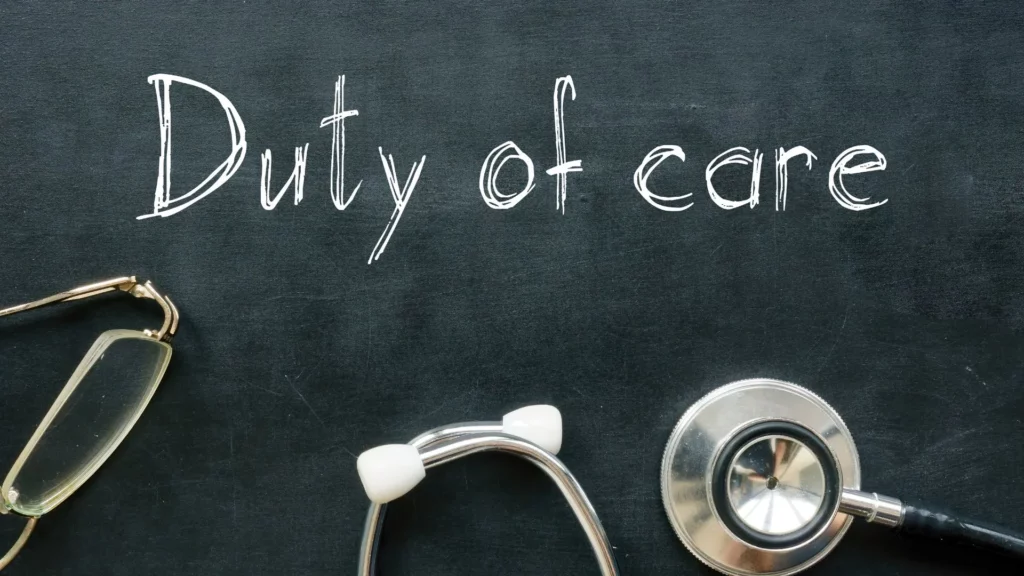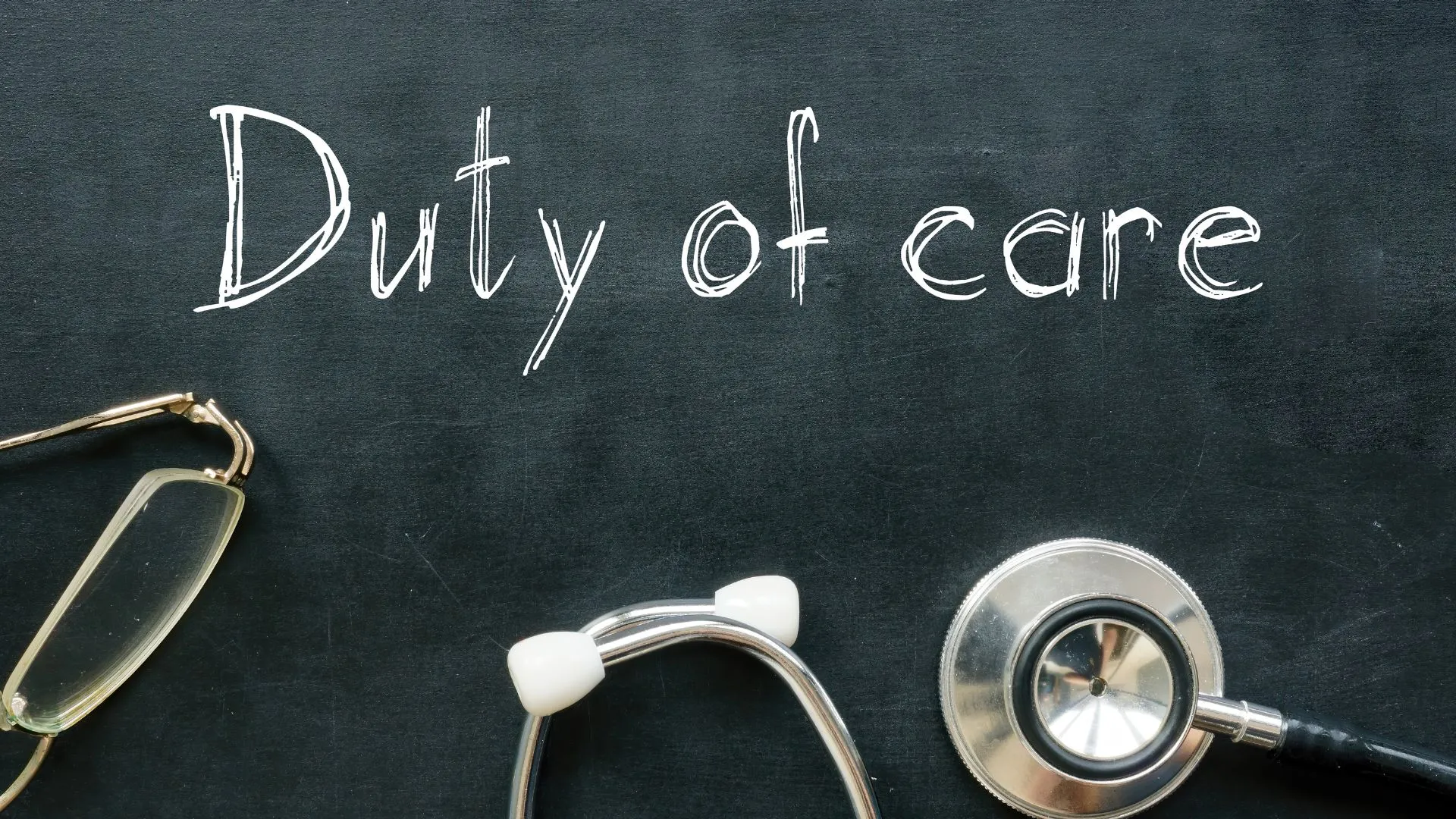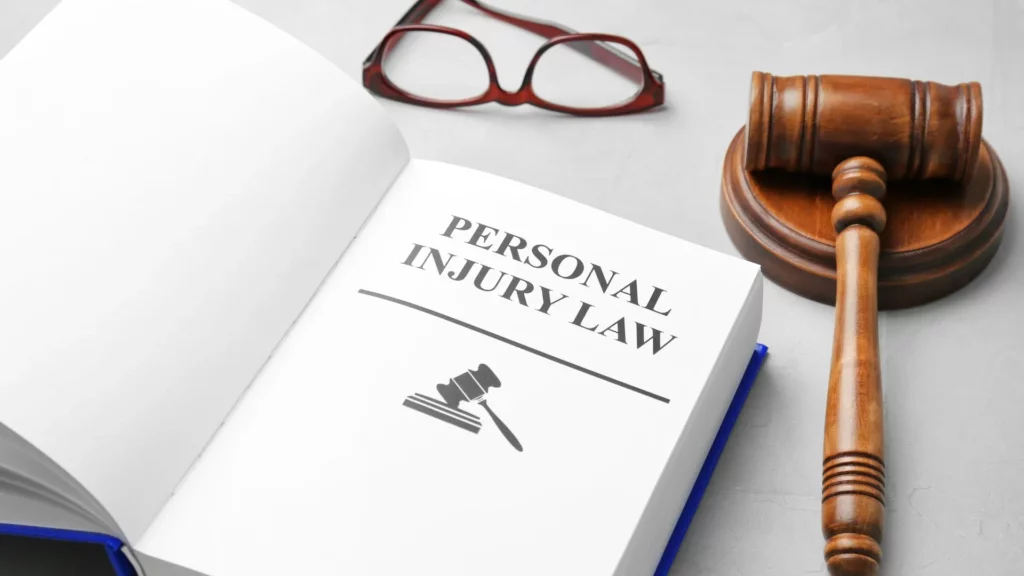
Duty of Care is a fundamental concept in both personal injury law and negligence cases. It refers to the legal obligation one individual or entity has to exercise reasonable care to prevent harm to others. Understanding this idea is really important because it’s the basis for most negligence claims. In this article, we will explore what duty of care means, the elements involved, examples of duty of care in various contexts, and its implications in legal cases.
Understanding the Concept of Duty of Care
The concept of duty of care means that individuals or organizations must act in a manner that does not cause unreasonable harm to others. It is a legal obligation and a standard that is generally based on what a reasonable person would do in similar circumstances. Failure to uphold this duty can lead to legal liability if it results in harm to another party.
To establish a duty of care, the relationship between the parties must be clearly defined. For example, doctors owe a duty of care to their patients, drivers owe a duty of care to other road users, and employers owe a duty of care to their employees. This obligation is not limited to these examples but applies in various scenarios where one’s actions or inactions could foreseeably impact others.
The Elements of Duty of Care
For a successful claim based on breach of duty of care, certain elements must be demonstrated. These elements form the core of negligence cases and are essential to proving liability:
1. The Existence of a Duty of Care
The first element is the existence of a duty of care between the parties involved. The relationship must be such that the law recognizes the obligation to exercise caution or care. For example, a property owner has a duty of care to maintain their premises in a safe condition for visitors. In contrast, a manufacturer has a duty to ensure their products are safe for consumers.
2. Breach of Duty
Once it is established that a duty of care exists, the next element is determining whether the duty was breached. A breach of duty occurs when a person or entity fails to act with the level of care that a reasonable person would have exercised in similar circumstances. For instance, if a driver runs a red light and causes an accident, they have breached their duty of care to other road users.
3. Causation
Causation links the breach of duty directly to the injury or harm suffered by the plaintiff. There are two types of causation in negligence cases: actual cause and proximate cause. Actual cause, also known as “cause-in-fact,” refers to the direct connection between the breach and the harm. Proximate cause, on the other hand, deals with whether the harm was a foreseeable consequence of the breach.
4. Damages
The final element is damages, meaning that the breach of duty must result in actual harm or injury. Without damages, even if a duty of care was breached, there would be no basis for a claim. Damages can be physical injuries, emotional distress, financial loss, or even property damage.
Examples of Duty of Care in Various Contexts
Duty of care applies across a wide range of scenarios. Below are some common examples:
1. Medical Malpractice
Healthcare providers, such as doctors and nurses, have a duty of care to provide competent medical treatment to their patients. When they fail to meet this standard—whether through misdiagnosis, surgical errors, or neglect—they may be held liable for medical malpractice.
2. Road Accidents
Drivers have a duty to operate their vehicles safely, following traffic laws and being mindful of other road users, including pedestrians. If a driver breaches this duty by driving recklessly or under the influence of alcohol, they can be held liable for any accidents or injuries caused.
3. Workplace Safety
Employers owe a duty of care to their employees, ensuring a safe working environment. This includes providing necessary training, equipment, and protective measures to prevent accidents or injuries. If an employer fails to uphold these responsibilities and an employee gets injured, the employer may face legal consequences.
4. Product Liability
Manufacturers, distributors, and retailers have a duty to ensure their products are safe for consumer use. If a defective product causes injury or harm, those in the chain of distribution may be held liable under product liability laws.
Duty of Care and Negligence Claims
The concept of duty of care is crucial in negligence cases. To succeed in a negligence claim, a plaintiff must prove that the defendant owed a duty of care and that this duty was breached, causing damages. Here’s how this applies in real-life situations:
1. Slip and Fall Accidents
Property owners have a duty of care to maintain safe conditions on their premises. If a customer slips and falls due to a wet floor that wasn’t properly marked, the property owner may be held liable for the resulting injuries. In such cases, the plaintiff must show that the owner knew or should have known about the hazard and failed to address it.
2. Car Accidents
In car accident cases, proving duty of care involves showing that the at-fault driver failed to adhere to traffic laws or drive with reasonable care. Breaches such as speeding, texting while driving, or ignoring traffic signals can all lead to successful negligence claims if they cause injury.
3. Professional Negligence
Professionals, such as architects, accountants, and lawyers, owe a duty of care to their clients. If they fail to provide services with the standard level of skill and competence expected in their field, they may be sued for professional negligence. For example, if a lawyer misses an important filing deadline, causing their client to lose a case, the client may have grounds for a negligence claim.
Legal Implications and Consequences of Breaching Duty of Care
Breaching a duty of care can lead to severe consequences, both legally and financially. If a defendant is found to have breached their duty, they may be required to compensate the injured party for their losses. Compensation, or damages, can include medical expenses, lost wages, pain and suffering, and property damage.
1. Compensatory Damages
These damages aim to compensate the injured party for the losses incurred due to the breach. This includes medical costs, rehabilitation expenses, and compensation for pain and suffering.
2. Punitive Damages
In cases where the breach of duty was particularly egregious or intentional, the court may award punitive damages. These are designed not just to compensate the victim but also to punish the wrongdoer and deter similar behavior in the future.
The Role of Legal Counsel in Duty of Care Cases
Navigating the legal complexities surrounding duty of care requires professional expertise. Personal injury attorneys play a critical role in these cases by assessing the evidence, establishing the duty owed, proving the breach, and demonstrating causation and damages. They also negotiate settlements and advocate for their clients in court to secure the best possible outcome.
Protect Your Rights: Contact West Coast Trial Lawyers for Duty of Care Claims
If you or a loved one has been harmed due to someone else’s breach of duty of care, it’s crucial to take action to protect your rights. At West Coast Trial Lawyers, our experienced legal team is here to guide you through the process, gather the necessary evidence, and advocate on your behalf. Don’t leave your future to chance—reach out today, Call (213) 927-3700 or by filling our contact form to schedule a free consultation and let us fight for the compensation you deserve.













































































